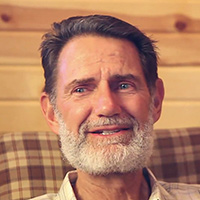
Acts 2:42 And they were continually devoting themselves to the apostles’ teaching and to fellowship, to the breaking of bread and to prayer.
Here we have a very revealing verse as to the life of the early church. We have four anchors of the church, four notable characteristics of the early church, four marks of true Christians everywhere. It must be important, for, out of all that could be said the Spirit of God chose these words.
Who were they? They were not apostles, not pastors, nor priests, but the believers, those who received the word, v. 41.
How devoted were they? They were continually devoting themselves to these exercises. They were attending assiduously, they were earnest towards, they were constantly diligent in these matters, they were persevering in all these exercises. Their attitude was not ‘hit and miss’, ‘maybe and maybe not’, ‘take it or leave it’, ‘if I feel like it or if it is convenient’, or ‘you go ahead, but don’t necessarily count on me’. No, they were continuing steadfastly.
The Early Church Was Devoted to the Word
To what were they continually devoting themselves? First, it was to the apostle’s teaching. They were very intent to be under the ministry of the word. If there was a preaching service across town, they did everything they could to get there. If they missed a meeting, they made sure to get the tape of the sermon. They wanted to be washed, built up, warned, kept, renewed, and taught. They wanted to know more about this Lord and Christ who was so exalted, v. 36. They wanted to know more about how to be saved from their perverse generation, v. 40. They were not only continuing steadfastly in hearing the word but also heeding it. They were not going back into the world. They were not going back into their old dead religion. They were giving heed to these New Covenant truths as to a lamp shining in a dark place. They knew the demons would like to snatch away the word and they were continually devoting themselves to it. They knew the cares of this life would choke the truths they had heard and they were continually devoting themselves to it.
The Early Church Was Devoted to Fellowship
Secondly, they were continually devoting themselves to fellowship, communication, interaction, and sharing. Birds of a feather were flocking together. It was not a matter of rare contact with the saints, not ‘hi and goodbye’, nor some independent attitude. They were not off doing their own thing, going their own way. Their attitude was not ‘keep your life to yourself and I will keep to mine’. But rather, they were into one another’s lives. They discussed problems, burdens, victories, and the truths of God [1 John 1.3]. There was this frequent interchange, this loving concern, this tender sympathy, this sharing of a new found joy, excitement, expectation, and reality.
The Early Church Was Devoted to the Lord’s Supper
Thirdly, they were continually devoting themselves to the breaking of the bread [lit.]. What is the meaning? Surely does not mean they were continually devoting themselves to eating, in contrast to fasting. That would be ridiculous. The literal reading indicates more than the communion meals, the love feasts, Acts 2.46b. Easily, it is with reference to the ordinance, the Lord’s Supper, Communion, the Breaking of Bread.
Mat 26:26 And while they were eating, Jesus took some bread, and after a blessing, He broke it and gave
1 Cor 11:24 and when He had given thanks, He broke it
1 Cor 10:16 Is not the cup of blessing which we bless a sharing in the blood of Christ? Is not the bread which we break a sharing in the body of Christ?
Their attitude? It was not ‘if I feel like it’; they were steadfast. It was not an optional business; they were steadfast. It was not a boring routine; there was gladness. It was not a dead church ritual or mere formality; there was gladness and praise (v. 47). They considered it very important. It was a great privilege for them to get in on this, for, they were formerly outsiders and strangers to the great God of heaven. They thought of it as an opportunity to obey a command of the Lord – this do in remembrance. They thought of it as an opportunity to remember the Lord in His dying for them. They thought of it as an opportunity to reenact the sufferings of the Lord. They thought of it as an opportunity to celebrate the greatest thing that has ever been done on the face of the earth, for, like Samson, the Lord Jesus Christ tore the gate off the Celestial City and made access to Paradise for all. Calvary was the Passover for the world, not just Israel. It was the great Day of Atonement when the guilt of sinners was truly carried away on the head of the Scapegoat. Calvary was the greatest purchase ever transacted on the face of the earth, for, there the Lord Jesus Christ purchased a people for His name out of every nation.
How often did they break the bread? Acts 20.7 suggests weekly. Acts 2.46 is daily. While these verses might not give us a hard rule, our text at least gives us the idea that it was frequent – continually devoted, and that would sound ridiculous if practiced only quarterly or even monthly.
You say, “I don’t get much out of the breaking of the bread.” Then, put more into it. Let the saints contribute more thought, more reminders, more exhortation, more prayers, and praises into and around this breaking of the bread.
The Early Church Was Devoted to Pray
Fourthly, they were continually devoting themselves to the prayers, which is the literal translation of the word. It was not a matter of ‘I might be there and might not’. It was not ‘I’ll be there unless some other delightful thing comes up’. It was not a matter of barely being able to schedule an hour or two per week for a prayer meeting. No, according to chapter 3.1, they met even daily. They were pouring out praises for the King of Kings, 2.47. They were supplicating God for His continued blessing; they did not lazily presume on the fact that it was a day of power.
In conclusion, what takes up your time and attention? Around what do you center your schedule? For what do you sacrifice? To what are you continually devoted? Are you doing well? Are you part of the church of the living God?















